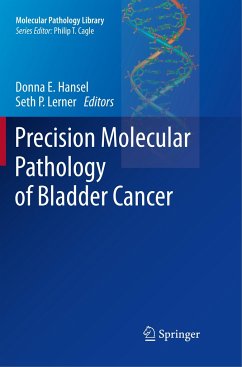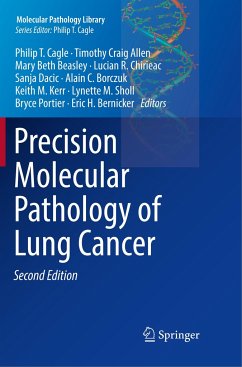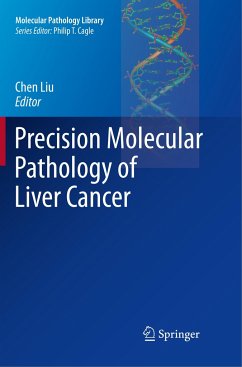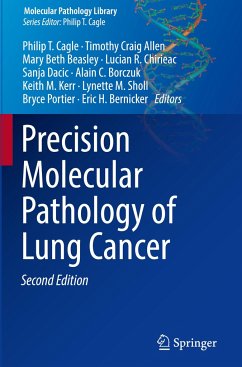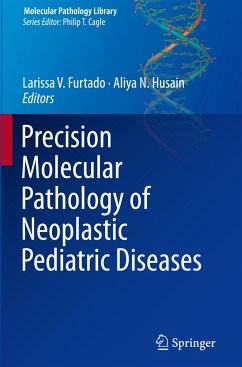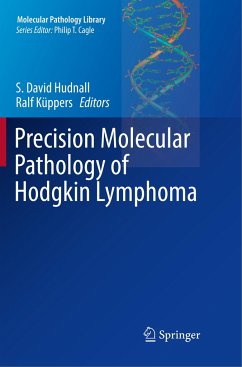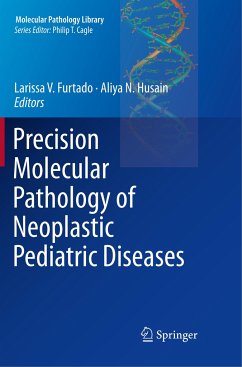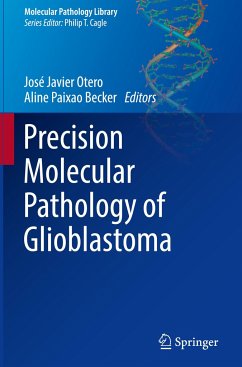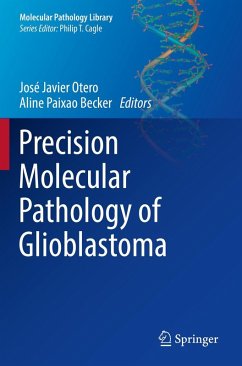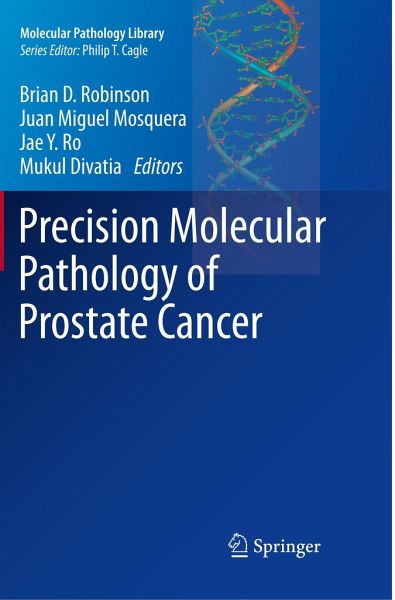
Precision Molecular Pathology of Prostate Cancer
Versandkostenfrei!
Versandfertig in 6-10 Tagen
100,99 €
inkl. MwSt.

PAYBACK Punkte
50 °P sammeln!
This volume focuses on our current understanding of the molecular underpinnings of prostate cancer and their potential application for precision medicine approaches. The emergence and applications of new technologies has allowed for a rapid expansion of our understanding of the molecular basis of prostate cancer and has revealed a remarkable genetic heterogeneity that may underlie the clinically variable behavior of the disease. The book consists of five sections which provide insight about the following: (1) General principles; (2) Molecular signatures of primary prostate cancer; (3) Molecula...
This volume focuses on our current understanding of the molecular underpinnings of prostate cancer and their potential application for precision medicine approaches. The emergence and applications of new technologies has allowed for a rapid expansion of our understanding of the molecular basis of prostate cancer and has revealed a remarkable genetic heterogeneity that may underlie the clinically variable behavior of the disease. The book consists of five sections which provide insight about the following: (1) General principles; (2) Molecular signatures of primary prostate cancer; (3) Molecular signatures of advanced prostate cancer; (4) Key molecular pathways in prostate cancer development and progression; (5) and Precision medicine approach: Diagnosis, treatment, prognosis. Precision Molecular Pathology of Prostate Cancer is an important resource for the practicing oncologist, urologist, and pathologist, and will also be useful for researchers in the prostate cancer community



